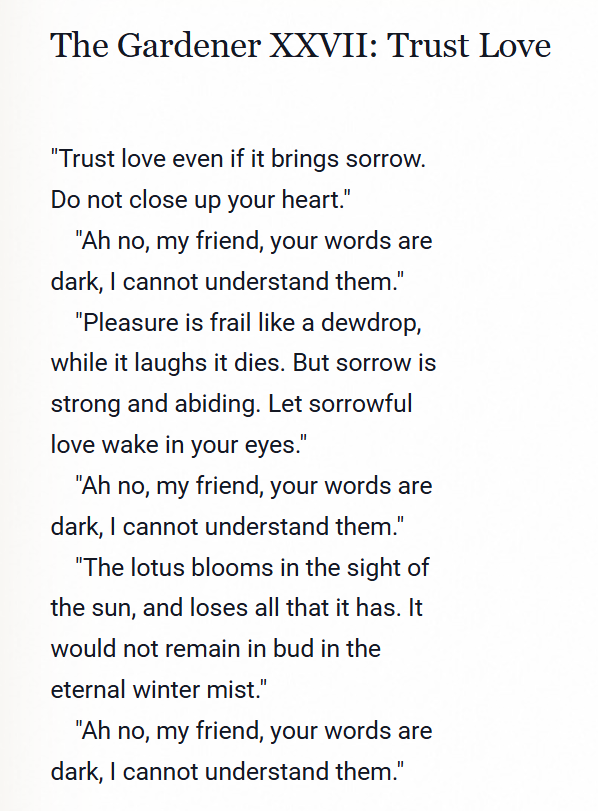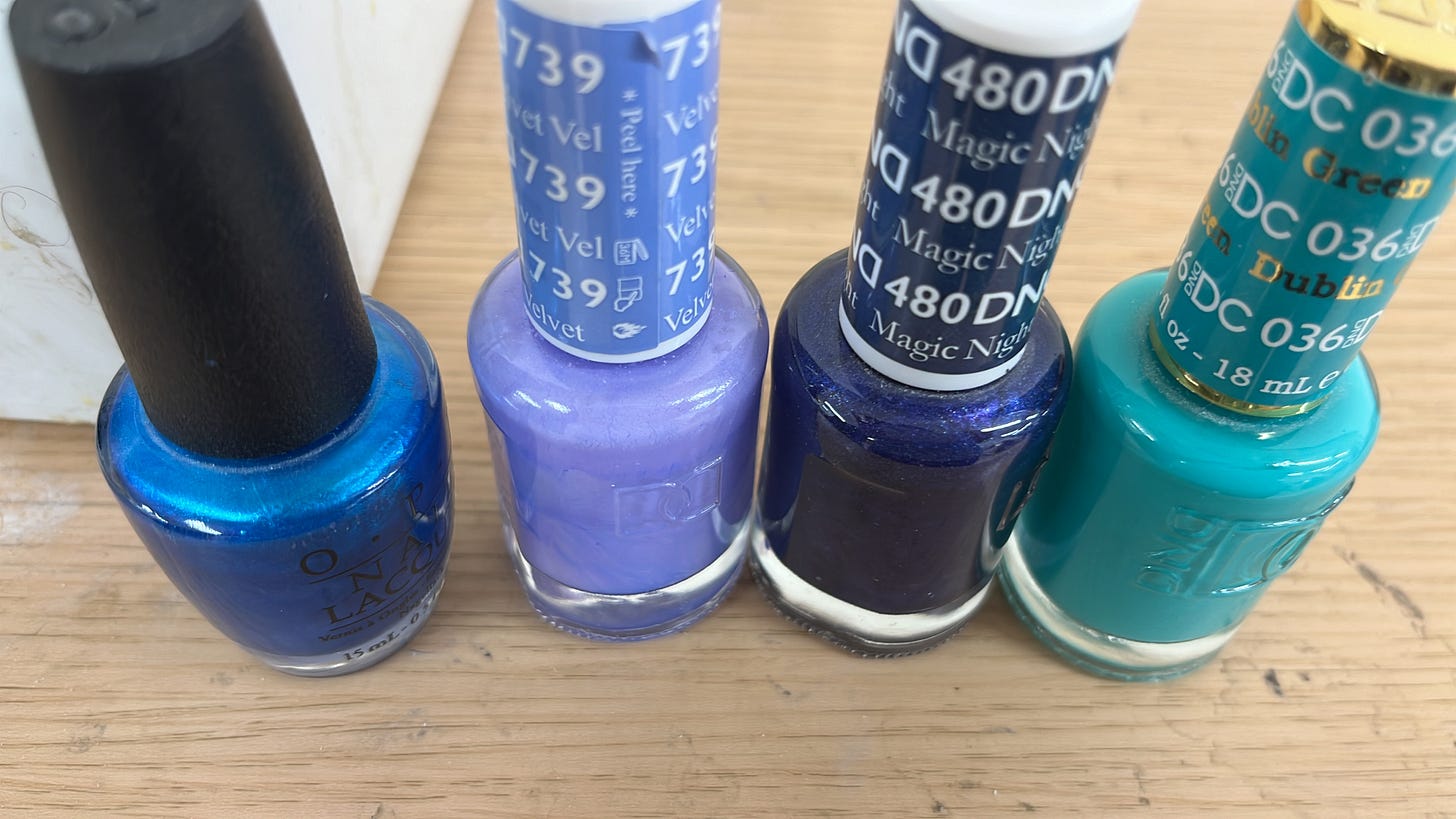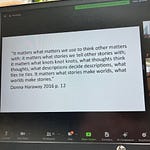Welcome!
This is a continuation of last week’s post, reflecting on spirituality and psychology / wellbeing, drafted back in August 2024, and tweaked a bit today. It can be read alone, but can also be read after the ghost post, part 1 first.
The Ghost Post
In my new year’s post I wrote about looking for a focus word for the year, and shared the words that had been powerful in 2024, anchoring me amongst the waves of uncertainty resulting from the big changes in my life.
No matter what stories exist in society about psychological distress and the people who need therapy, and those that don’t, it is human to want to avoid pain and suffering. Ironically, the more we turn from it, the more we can suffer. Much of my work as a clinical psychologist involves supporting people to face a truth that is hard to stomach. With support they can begin to acknowledge, and over time, find ways to process and manage the difficult thoughts and feelings that they are trying hard not to experience. We all do this to some degree.
Last week I considered whether spirituality can help anchor us through these kinds of challenge, and reflected on the fact that I rarely ask about the spiritual anchors people might have in my therapy with them. I acknowledged the potential benefits of spirituality, and pitfalls such as spiritual bypassing. I understand this to be another way of shoving things in the cupboard and pushing the doors shut, whilst believing the difficult work has been done.
What pictures are we willing to see, and what stories do we want to tell?
It is my understanding that we become stronger, and more deeply connected to the different parts of ourselves, and each other, when we see what is really here, rather than pretending the messy parts of our experience aren’t present. This doesn’t mean we need to share our most personal parts of ourselves with everyone, but we at least, need some awareness of what’s in our own closet.
Do you find yourself, or friends and family glossing over difficult experiences, and when someone reaches out to help, the response is the equivalent of…
‘Nope, nothing in my linen closet. All good here.’
There can be a kind of disconnect in the relationship when this happens. And it can happen the opposite way, where we share something difficult and painful, and the other person tries to shut us down, or bring focus on the positive.
We generally want to make ourselves and other people feel better- it makes most people feel good to make people feel good. Brene Brown has a great video that I’ve used a lot in training parents and carers, that highlights the ways in which we can do this unhelpfully. Unwittingly pushing the doors of the linen cupboard shut with a disconnecting but common response of ‘At least…’
Trying to put a positive spin on situations is invalidating at times and I have an idea that our wise inner committee shout loudly when they can see us, or other people, ignoring or dismissing the shadowy stuff.
‘We need to deal with this’, the committee yell, ‘whether you like it or not’.
I don’t know about you, but I sometimes notice this happening when there is something I am struggling with, but I am not ready to deal with it. We may seek support through talking it through with others, hoping to make sense of it, but are sometimes met with a positive reframe that either focusses only on the positive things, or turns the negatives into a positive. I can find myself becoming irritated in these situations, and it’s the equivalent of the ‘at least’, turning away from the painful parts.
It is important to see the whole picture, but toxic positivity, where everything is met with a positive reframe, is a form of bypassing. It isn’t accepting and processing, it is a means of avoidance. My response to situations like this tends to be to give more space to the painful aspects, because my need to process these has not gone away. When met with more ‘at leasting’, I realise that I need to do the hard inner work on my own.
Our emotional responses are valid, and it is necessary to meet what arises, perhaps simply by sitting with the emotion, or considering what might help it ease. The film Inside Out, has a scene with Bing Bong, Sadness, and Joy that is an excellent example of this!
We’ve probably all experienced the disconnecting response shown by Joy in exchanges with friends, and family when they don’t meet our pain. This is typically not an indication that they don’t care about us, or our pain, but their capacity to connect with the emotional content at that time. We have undoubtedly all responded similarly to others, and ourselves, we’re human, after all!
Connecting conversations
We may not be able to stop our tendency to try to make things better, or to make people feel better, but we can practice how to sit with, and over time, better accept the more painful feelings and parts of ourselves.
Which type of response makes us feel better, and deepens our connections?
I don’t know what to say right now, but I’m just so glad you told me
vs
At least…
For me, writing is a fantastic way of grounding and staying with myself. I feel connected to something beyond and greater than myself, which could be understood by different people as spirit, God, wise mind, or something else. Whether the writing form is poetry, stream of consciousness, an article that helps me make sense of things more cognitively, or a diary entry, each has its place. I am not writing from my knowing mind, and cognitively bringing up the words, but from a source that is unknowable until it appears on the page. My mind can help me make sense of the words, and to put them in a form that makes sense, but my mind did not always plan it in advance. Some writers talk of their hand and words being written, rather than claiming credit for them themselves. Who or what is the Muse??!
And when the topic is feelings and thoughts, and I’m writing for wellbeing, often the critical committee quietens down when they can see that I’ve got a better handle on things.
‘I see your suffering, and I’m here with you’, is often all we need to know.
The more we practice this approach, the more we become able to see that we are not our thoughts, feelings, and challenges, rather, there is a wise observing mind. It does not have to get caught up in the difficulty, nor redirect our attention to the positive things. Unlike spiritual bypassing, here the stepping back allows us to see what is there, and to be with it. In this way we can better understand the distress, and find ways to resolve it, but by knowing it, rather than denying, or running away from the experience of suffering, and simply letting it pass.
We learn to trust that we can handle the difficult situations. We also learn to feel compassion for, maybe even to love those trickier parts of ourselves, and to be compassionate when we recognise them in others. Pema Chodron acknowledges that over time we stop wanting to do the work just for ourselves, but because of the positive impact it has on other people (In When Things Fall Apart: Heart Advice For Difficult Times, 1996).
We do not have to stop wanting people to feel better, we might just need to tweak how we go about it.
Trust Love
When everything else falls apart, what do we have to cling to? What are your anchors? Writing allows me to be in the moment, to give voice to the difficult parts, and the beautiful things in the world that bring me joy and pull me out of whatever funk I am in. I find the clarity in the light of writer’s wisdom and love.
As I prepare to move overseas I am mindful that I will be losing much of what is familiar, and feel wobbly. In these moments what is there to anchor us? Whatever our spiritual beliefs, poetry always offers me an answer.
The Gardener 27: Trust Love by Rabindranath Tagore (1861-1941)
The poem is part of a much longer piece by Tagore, called The Gardener. It invites us to follow our dreams, and the path of love, even though they may bring heartache. The light of the sun allows the lotus to bloom, and though in time it loses its petals, it deepens its roots, and grows stronger.
It is frightening to allow ourselves to be vulnerable, and to let go of what we know. The poem acknowledges that we do not always want to hear the call of our hearts to open!
‘your words are dark, I cannot understand them’.
Trust love, it says.
Do not close up your heart. Keep listening to its call amidst the darkest of moments.
From the deep to the shallow
Two years ago I was at a creative writing session having just returned from a yoga retreat. I wrote about my sparkly Fit Flops, and how well they had served me on the retreat- being both pretty and practical. It reminded me of the two aspects of compassion, the softness and sensitivity to suffering in life, and the resolve to take action to reduce suffering. Over the coming days my feet will be walking me out of my home, into the great unknown. They will be on display more than before, so I’ve had my toenails painted!
I can look down at my pretty and practical feet, and trust my roots, the lotus, the universe, and the path of love.
Picture of the nail varnish colour shortlist to pretty my feet ready for the Cayman Islands. (I’d unknowingly picked the Willow Blooms colours, anchoring me to myself!)
There is both a lot to do, and a lot to adjust to, mentally and physically. I am fortunate to have had the help of a fabulous tribe of friends and family, for which I am deeply grateful. I couldn’t have got here without so many helpers.
Thank you.
















Share this post